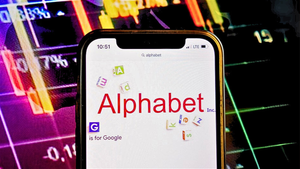NEW YORK, May 03, 2024 (GLOBE NEWSWIRE) -- Bragar Eagel & Squire, P.C., a nationally recognized shareholder rights law firm, reminds investors that class actions have been commenced on behalf of stockholders of HireRight Holdings Corporation (NYSE: HRT), Doximity, Inc. (NYSE: DOCS), Global Cord Blood Corporation (OTC: CORBF), and Lincoln National Corporation (NYSE: LNC). Stockholders have until the deadlines below to petition the court to serve as lead plaintiff. Additional information about each case can be found at the link provided.
HireRight Holdings Corporation (NYSE: HRT)
Class Period: pursuant and/or traceable to the Offering Documents issued in connection with HireRight’s October 2021 initial public offering (the “IPO” or “Offering”)
Lead Plaintiff Deadline: June 3, 2024
HireRight provides technology-driven workforce risk management and compliance solutions to a customer base characterized as a “diverse set of organizations, from large-scale multinational businesses to small and medium-sized businesses, across a broad range of industries.” The Company offers background screening, verification, identification, monitoring, and drug and health screening services for customers under the HireRight brand name and boasts a purportedly “robust pipeline of opportunities developed by [its] sales team to continue to attract new customers and take share in the market.”
On October 6, 2021, HireRight filed a registration statement on Form S-1 with the SEC in connection with the IPO, which, after an amendment, was declared effective by the SEC on October 28, 2021 (the “Registration Statement”).
On November 1, 2021, HireRight filed a prospectus on Form 424B4 with the SEC in connection with the IPO, which incorporated and formed part of the Registration Statement (the “Prospectus” and, collectively with the Registration Statement, the “Offering Documents”).
That same day, pursuant to the Offering Documents, HireRight’s common stock began publicly trading on the New York Stock Exchange (“NYSE”) under the ticker symbol HRT.
Pursuant to the Offering Documents, HireRight issued approximately 22. million shares of its common stock to the public at the Offering price of $19.00 per share for proceeds to the Company of approximately $399 million after applicable underwriting discounts and commissions, and before expenses.
According to the complaint, the Offering Documents were negligently prepared and, as a result, contained untrue statements of material fact or omitted to state other facts necessary to make the statements made not misleading and was not prepared in accordance with the rules and regulations governing its preparation. Specifically, the Offering Documents made false and/or misleading statements and/or failed to disclose that: (i) HireRight was exposed to customers with significant employment and hiring risk and the Company derived greater revenue growth from existing client hiring than from new client hiring; (ii) as a result, the Company’s revenue growth was unsustainable to the extent that it relied on the stability of its current customers’ hiring and/or the profitability of securing new customers; (iii) accordingly, HireRight had overstated its post-IPO business and/or prospects; and (iv) as a result, Defendants’ statements about the Company’s business, operations, and prospects were materially false and misleading and/or lacked a reasonable basis at all relevant times.
On January 19, 2023, Stifel, a brokerage and investment banking firm, downgraded HireRight’s stock from a Hold to a Buy, prompting several market analysts to issue publications discussing the downgrade. For example, Seeking Alpha reported that Stifel found HireRight to be exposed to large technology firms where there is more acute employment and hiring risk, and that more of the Company's growth comes from existing client hiring than from new.
On this news, HireRight’s stock price fell $0.88 per share, or 7.5%, to close at $10.75 per share on January 19, 2023
At the time of the Complaint's filing, HireRight’s common stock continue to trade below the $19.00 per share IPO price.
For more information on the HireRight class action go to: https://bespc.com/cases/HRT
Doximity, Inc. (NYSE: DOCS)
Class Period: February 9, 2022 - April 1, 2024 (Common Stock Only)
Lead Plaintiff Deadline: June 17, 2024
Doximity operates a digital platform that provides connections between, medical information to, and patient scheduling tools for medical professionals. The Class Period begins on February 9, 2022, when Doximity released its quarterly financial results for the third quarter of fiscal year 2022, after the market closed the night prior. During the accompanying quarterly investor earnings call afterhours on February 8, 2022, Defendant Anna Bryson, the Company’s Chief Financial Officer, emphasized that “marketers have been able to witness the value of running these digital programs” and that it was this “value that’s the main reason we’re seeing this sustained demand from our customers and not new [COVID] variants.” To this end, Defendant Bryson further assured investors that the Company was “focused on . . . really building a business that can provide years of sustainable growth with high margins.”
The complaint alleges that, throughout the Class Period, Defendants continued to tout the sustainability of the Company’s business prospects while also downplaying the importance of customer upsell rates on the Company’s financial performance. For example, during the Company’s second quarter fiscal year 2023 investor earnings call on November 10, 2022, Defendant Jeffrey Tangney, the Company’s Chief Executive Officer, reassured investors that “pharma’s doing quite well” amid investor concerns that macroeconomic headwinds would substantially impact Doximity’ financial performance. Defendant Bryson similarly emphasized that the Company’s sales pipeline has “bigger dollar deals than we’ve seen before” and, to alleviate investor concerns, explained that, while Doximity’s upsell rates were “a little below historical norms,” customer upsells are “not a significant portion of our revenue.”
Similarly, in February 2023, Defendant Bryson specifically noted that Doximity is “less dependent on major upsell than prior years,” and in May 2023, Defendant Bryson indicated that the Company was being conservative with its financial guidance to the market by assuming upsell rates of “half of our historical [upsell] rate.”
The complaint further alleges that notwithstanding Defendants’ claims regarding the sustainability of Doximity’s growth and profitability, investors began to learn the truth on August 8, 2023, when, after the market closed, Doximity reported its financial results for the first quarter of fiscal year 2024, which ended June 30, 2023. While the Company exceeded its quarterly revenue and adjusted EBITDA guidance for the first quarter, the Company provided disappointing guidance for the second quarter of fiscal year 2024 and slashed its guidance for the full fiscal year 2024. Specifically, Doximity announced that it expected fiscal year 2024 revenue of between $452 million and $468 million (down from prior guidance of between $500 million and $506 million, and representing year-over-year revenue growth of only between 7.9% and 11.7%), and adjusted EBITDA of between $193 million and $209 million (down from prior guidance of between $216 million and $222 million, and representing year-over-year adjusted EBITDA growth of only between 4.9% and 13.6%). In conjunction with the disappointing guidance, Doximity announced that it would reduce its workforce by approximately 10%. The Company further noted that the workforce reduction is expected to cost approximately $8 million to $10 million.
In explaining this about-face, Defendant Bryson admitted that the Company’s “major upsells have materially underperformed, and we expect this to continue in the near term.” Defendant Tangney further explained that Doximity failed to close sales due, in part, to “fewer face-to-face meetings with our clients.” On this news, the price of Doximity common stock declined $7.49 per share, or nearly 23%, from a close of $32.79 per share on August 8, 2023, to close at $25.30 per share on August 9, 2023.
Investors learned more about the unsustainability of the Company’s revenue growth on April 1, 2024, when Jehoshaphat Research published a report alleging, among other things, that “Doximity’s underlying sales . . . are declining at a negative -3-6% rate, but that this decline has been masked through accelerated revenue recognition.” On this news, the price of Doximity common stock declined $1.11 per share, or more than 4% over two trading-days, from a close of $26.91 per share on March 28, 2024, to close at $25.80 per share on April 2, 2024.
The Complaint further alleges that, throughout the Class Period, Defendants made materially false and/or misleading statements, as well as failed to disclose material adverse facts, about the Company’s business and operations. Specifically, Defendants repeatedly touted the Company’s business prospects and the sustainability of the Company’s revenue growth and profitability, while downplaying the impact of competition and tightening macroeconomic conditions on the Company and Doximity’s reliance on “upselling” products and services (such as additional advertising) to existing customers to sustain the Company’s performance and future growth.
For more information on the Doximity class action go to: https://bespc.com/cases/DOCS
Global Cord Blood Corporation (OTC: CORBF)
Class Period: June 4, 2019 - May 3, 2022
Lead Plaintiff Deadline: June 21, 2024
Global Cord, together with its subsidiaries, provides umbilical cord blood storage and ancillary services in the in the Beijing Municipality, Guangdong Province, and Zhejiang Province of the People's Republic of China ("PRC"). The Company has received but rejected multiple "going private" offers, or transactions in which a public company is converted into private ownership.
From the Company's inception until January 2018, Global Cord's largest shareholder was Golden Meditech Holdings Limited ("Golden Meditech" or "GMHL"), a medical device and hospital management company incorporated in the Cayman Islands and based in the PRC. Founded in 2001 by Defendant Yuen Kam ("Kam"), Golden Meditech was publicly listed on the Hong Kong Stock Exchange until October 2020, when it was taken private by Kam.
Golden Meditech's previous financial interest in Global Cord is just one of the significant connections that have existed between the two companies during the relevant time. Global Cord and Golden Meditech also maintained the same registered address in Hong Kong, even occupying the same building floor. Defendants Kam, Ting Zheng ("Zheng"), and Bing Chuen (Albert) Chen ("Chen") also have significant additional business and/or personal ties to each other and to Global Cord and Golden Meditech, as further alleged in the Complaint.
In September 2016, Golden Meditech, in combination with The University of Texas at MD Anderson Cancer Center, announced the founding of Cellenkos Inc. ("Cellenkos"), a biotechnology company based in Houston that focuses on umbilical cord blood-derived T-regulatory cellular therapies.
On April 29, 2022, after the market closed, in a Form 6-K filed with the SEC, Global Cord announced that it had entered into a Material Definitive Agreement to acquire Cellenkos for over $1 billion, including $664 million in cash and 114 million Global Cord shares-roughly the same number of the Company's shares that were already outstanding (the "Transaction"). The Transaction thus stood to dilute the Company's shareholders by half and deplete its sizable cash balance.
On this news, Global Cord's stock price fell $0.98 per share, or 28.57%, from $3.43 at the close of trading on April 29, 2022, to close at $2.45 per share on May 2, 2022.
According to the filed complaint, the Transaction was rushed to completion in under three days from when Global Cord's Board was first notified of it, without the shareholder approval that would be expected-and was required-for such a momentous transaction. Further, it grossly overvalued Cellenkos, such as by assuming that all of its treatments would receive regulatory approval.
Global Cord's Directors approved the Transaction to benefit themselves and other Company insiders and related parties. The court in the Cayman Islands has criticized the role of Global Cord's Directors and management in the Transaction, stating (among other observations) that "it is impossible at this stage to discern any easily comprehensible commercial rationale for the Company, especially being a listed company, consummating and implementing an arrangement which was so financially and strategically significant with such a breath-taking combination of speed and stealth, particularly in circumstances where the Company was (as at April 29, 2022) under 'minority' rather than majority shareholder control."
On May 3, 2022, Blue Ocean Structure Investment Company Limited, a wholly owned subsidiary of Nanjing Yingpeng, filed a Petition (the "Petition") in the Grand Court of the Cayman Islands, Financial Services Division, opposing the Transaction. Specifically, the Petition asserted that Cellenkos had no discernible long-term value, that the Transaction purchase price was unjustifiable, that the Transaction would result in a massive dilution of Global Cord shareholders, that the close relationship between Global Cord and Cellenkos constituted a conflict of interest, and that the Transaction was approved without sufficient shareholder knowledge.
On this news, Global Cord's stock price fell $0.22 per share, or 9.09%, to close at $2.20 per share on May 5, 2022.
On September 22, 2022, as a result of the actions described above and other misconduct by the Individual Defendants related to the Transaction, the Grand Court of the Cayman Islands suspended the powers of Global Cord's Directors and appointed Joint Provisional Liquidators over the Company.
Following the appointment of the Joint Provisional Liquidators, the NYSE halted trading in Global Cord's ordinary shares, effective September 23, 2022.
Evidence that was presented to the Cayman Islands court, and that was investigated further and corroborated by the Joint Provisional Liquidators appointed by the Cayman court, shows that the Cellenkos Transaction was actually part of a cover-up aimed at "filling a gap" in Global Cord's balance sheet. It turns out that from September 2015 to May 2022, Global Cord made secret, undisclosed payments of approximately $606 million to entities related to Golden Meditech and controlled by Defendant Kam.
Kam and the Golden Meditech Defendants misappropriated even more of Global Cord's funds. The Joint Provisional Liquidators have been able to identify only approximately US$427,000 and HK$135,000 in Global Cord's bank accounts, as compared to the over $1 billion in cash that the Company reported before the Transaction was announced.
On June 22, 2023, the Securities and Exchange Commission filed a Form 25 Notification of Removal from Listing and/or Registration Under Section 12(b) of the Securities Exchange Act of 1934, stating: "Pursuant to 17 CFR 240.12d2-2(b), the Exchange has complied with its rules to strike the class of securities from listing and/or withdraw registration on the Exchange." The Company's shares continue to trade in the United States on the over-the-counter market and, as of April 22, 2024, are trading at $1.35 per share.
The complaint further alleges that throughout the Class Period, Defendants made materially false and misleading statements regarding the Company's business, operations, and prospects. Specifically, Defendants made false and/or misleading statements and/or failed to disclose that: (i) Global Cord employed a capital allocation strategy designed to reserve funds for Company insiders and related parties rather than for the benefit of Company shareholders; (ii) Global Cord's decisions to reject multiple going private offers and enter into the Transaction were nothing more than self-serving and conflicted attempts by Defendants to divert company funds to corporate insiders and related parties; (iii) Defendants had fundamentally misrepresented to investors Global Cord's approach to capital allocation, strategic investments, acquisitions, and related party transactions as a result of the misappropriation by Defendant Kam and his entities of hundreds of millions of dollars from the Company; and (iv) as a result, the Company's public statements were materially false and misleading at all relevant times.
For more information on the Global Cord class action go to: https://bespc.com/cases/CORBF
Lincoln National Corporation (NYSE: LNC)
Class Period: November 4, 2020 - November 2, 2022
Lead Plaintiff Deadline: June 24, 2024
On November 2, 2022, after the market closed, Lincoln National released its third quarter 2022 financial results, reporting a net loss of $2.6 billion for the quarter. This was compared to a net income of $318 million for the third quarter of 2021 the previous year. The Company explained “[t]he current quarter’s adjusted operating results included net unfavorable notable items of $2.0 billion, or $11.62 per share, related to the company’s annual review of DAC and reserve assumptions.” The Company also disclosed that it “incurred a $634 million goodwill impairment to the life insurance business.”
On this news, Lincoln’s stock price fell $17.27, or 33.2%, to close at $34.83 per share on November 3, 2022, on unusually heavy trading volume.
The complaint filed in this class action alleges that throughout the Class Period, Defendants made materially false and/or misleading statements, as well as failed to disclose material adverse facts about the Company’s business, operations, and prospects. Specifically, Defendants failed to disclose to investors: (1) that the Company was experiencing a decline in its VUL business; (2) that, as a result, the goodwill associated with the life insurance business was overstated; (3) that, as a result, the Company’s policy lapse assumptions were outdated; (4) that, as a result, the Company’s reserves were overstated; (5) that, as a result, the Company’s reported financial results and financial statements were misstated; and (6) that, as a result of the foregoing, Defendants’ positive statements about the Company’s business, operations, and prospects were materially misleading and/or lacked a reasonable basis.
For more information on the Lincoln class action go to: https://bespc.com/cases/LNC
About Bragar Eagel & Squire, P.C.:
Bragar Eagel & Squire, P.C. is a nationally recognized law firm with offices in New York, California, and South Carolina. The firm represents individual and institutional investors in commercial, securities, derivative, and other complex litigation in state and federal courts across the country. For more information about the firm, please visit www.bespc.com. Attorney advertising. Prior results do not guarantee similar outcomes.
Contact Information:
Bragar Eagel & Squire, P.C.
Brandon Walker, Esq.
Marion Passmore, Esq.
(212) 355-4648
investigations@bespc.com
www.bespc.com







